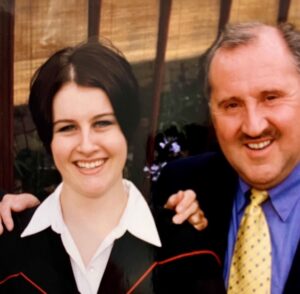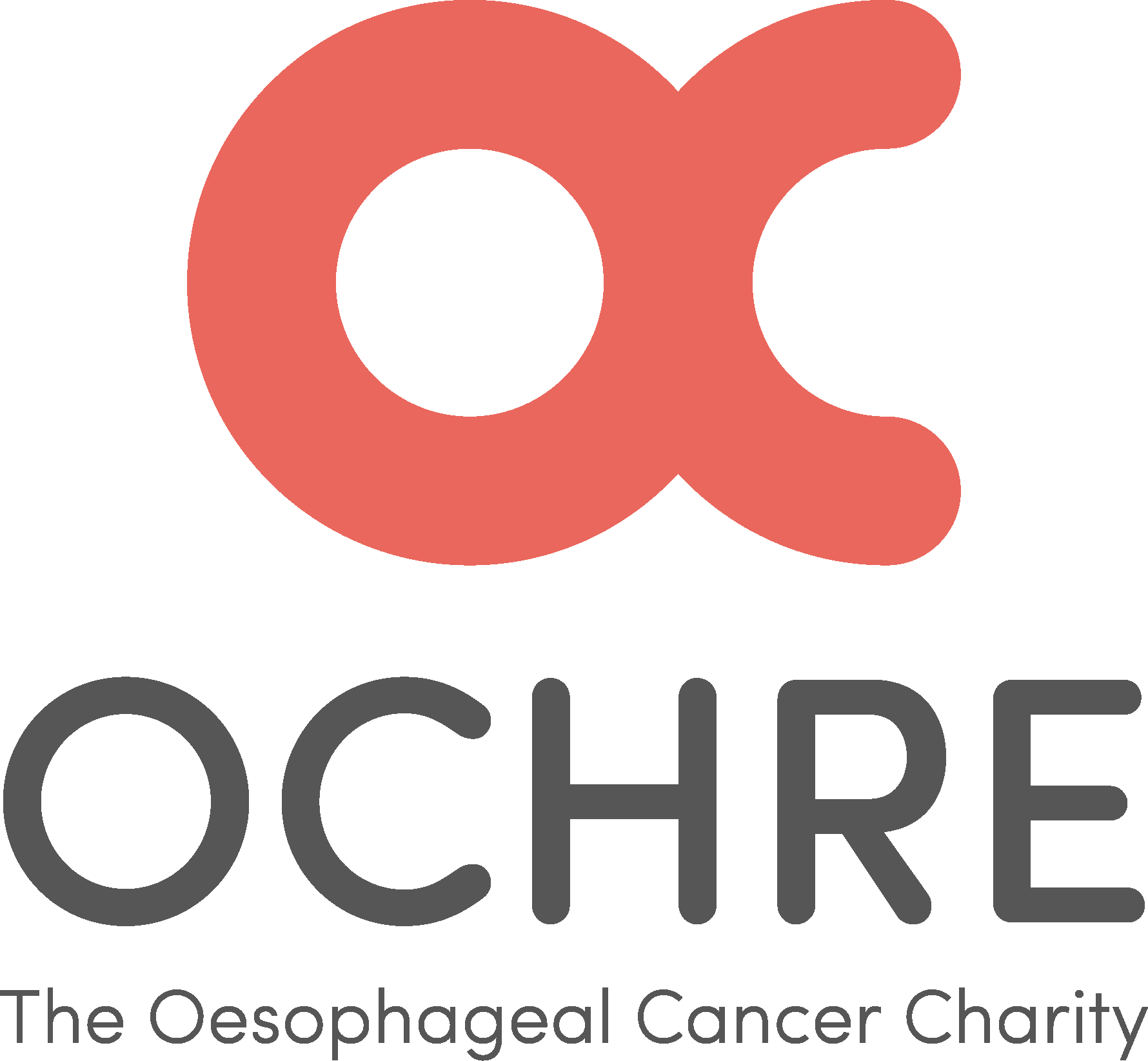Sue’s story
OCHRE Trustee, Sue Kee shares her late father’s journey as she prepares to walk the Great Wall of China to raise for funds for OCHRE’s work
My dad, Gordon Kee, was a force of nature – a huge personality with a voracious appetite for life. He was a well-respected businessman and entrepreneur, an accountant by trade but latterly in the business of pre-paid funeral planning. In his spare time, he played golf and enjoyed shooting and fishing as well as travelling. “Work hard, play hard” was the motto he lived by.

It was a crushing blow for us all when he was diagnosed with cancer of the oesophagus in 1999, at the age of just 51.
I always think of him as a big eater and drinker, loving spicy curries from the local Indian restaurant and large glasses of brandy after a meal (he will always be renowned for his generous pouring measures…) Like many people in the same situation, Gordon had been struggling to swallow for months, but never felt like it was something to bother seeing his GP about. He picked me up from work one day to take me out for a birthday lunch, and it surprised me to see how uncomfortable he was with every mouthful of food, so I encouraged (nagged) him to make an appointment. It was just a couple of weeks later that he was undergoing an aggressive surgery to remove part of his oesophagus with just a 50% chance of survival.
Thankfully he did come out of that operation successfully, though recuperation was brutal. Sleeping and eating were trials of torture. Despite losing a shocking amount of weight, eventually there followed around two years of relative “normal”. My dad was able to go on holiday, attend his oldest friend’s wedding as best man, and significantly, he helped to form the charity OCHRE with some colleagues and clinicians he’d met on his patient journey.
Back then, the key mission was early diagnosis. My dad’s story was not uncommon – symptoms for many patients were often overlooked as heartburn or indigestion, meaning sufferers ignored, or self-medicated their discomfort for a long time before eventually seeing their GP. Then of course it was up to the GP to be sufficiently aware of oesophageal cancer and feel concerned enough about the symptoms to request an endoscopy. This could take months or even longer, with the precious time for curative intervention ticking away.
Twenty years on and the situation has not improved. In fact, like many cancers, the situation for diagnosis of oesophageal cancer has worsened in the last few years due to the impact of the Covid-19 pandemic and endoscopy services being stripped back.
OCHRE has achieved some important successes in the last two decades. We have procured a LIFE-GI System for detection of premalignant cells preceding gastrointestinal cancers, in use at Glasgow’s Gartnavel Hospital. We are funding research at the Queen’s University Belfast to determine if blood-based biomarker analysis can be used for early cancer detection. But there is still so much to do.
My dad passed away in a hospice in May 2002 after his cancer returned, metastasising to his brain and his liver. He was unable to speak. He was bedridden and in pain. The indignity and unfairness of it can still take me by surprise to this day. It seems impossible that he will never meet his amazing granddaughter, Gemma, and that she, like all his family and friends, has been deprived of this incredible person in her life.
OCHRE will keep funding research to support early diagnosis, and campaigning to get oesophageal cancer prioritised by the Scottish Government. We will keep trying to improve outcomes for patients and our message to you in the meantime is to not ignore the symptoms. If you have difficulty swallowing or persistent heartburn, it probably isn’t cancer but please do get checked by your GP, just in case.
